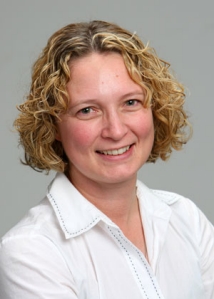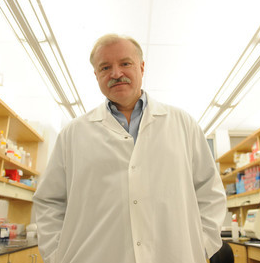When awake, the human brain produces enough energy to illuminate a light bulb. With that type of brainpower, its no wonder neuroscience has dedicated a full week to our body’s most important organ.
Brain Awareness Week is a global campaign designed to increase public awareness of the progress and benefits of brain research. The event, happening this year from March 14-18, unites the efforts of various organizations to celebrate and educate people of all ages about the brain.
One of these organizations is the Halifax-based . The centre is a partnership with researchers holding academic appointments at AVĺ„ņ÷≤Ņ and clinical appointments at the QEII Health Sciences Centre and/or the IWK Health Centre. As a research institute, its mission is to discover and develop the tools to prevent, repair and potentially reverse damage in the brain and spinal cord.
This past Wednesday, the centre was proud to host its second-annual BRC Neuroscience Research Update at the new Collaborative Health Education Building.
‚ÄúAcross the university, there are many talented investigators who are contributing to Dal‚Äôs reputation as a leading international neurological research facility,‚ÄĚ said Dr. David Anderson, dean of AVĺ„ņ÷≤Ņ Medical School.
Sharing research connections
Introducing the forum, Dr. Anderson said he hoped it would highlight some of the interesting research coming out of the institute. The event featured three Halifax-based researchers providing an overview of the current research being done by them and their colleagues.
 The first presenter was Dr. Tara Perrot (left), professor and chair of the Department of Psychology & Neuroscience in the Faculty of Science. Her research focuses on stress: how stress is associated with behaviour, how to combat and manage stress, and how parents can help their children develop resilience through positive responses to stress. Her lab seeks to better understand what stress does to the brain, and how to mitigate these effects.
The first presenter was Dr. Tara Perrot (left), professor and chair of the Department of Psychology & Neuroscience in the Faculty of Science. Her research focuses on stress: how stress is associated with behaviour, how to combat and manage stress, and how parents can help their children develop resilience through positive responses to stress. Her lab seeks to better understand what stress does to the brain, and how to mitigate these effects.
Next was Dr. George Robertson, professor in the Departments of Psychiatry and Pharmacology at AVĺ„ņ÷≤Ņ Medical School. Dr. Robertson took the podium to discuss his research into neurodegenerative disorders such as Alzheimer‚Äôs disease, stroke, multiple sclerosis and Parkinson‚Äôs disease, the second most common degenerative disease in the world next to Alzheimer‚Äôs and the focus of his presentation. Dr. Robertson (right) described how he became intrigued by dyskinesia ‚ÄĒ the abnormality or impairment of voluntary movement that individuals with Parkinson‚Äôs disease experience. He hopes his research on dyskinesia will provide a better understanding of the brain and perhaps allow him and his team to learn lessons that might be applied to other degenerative diseases in the future.
world next to Alzheimer‚Äôs and the focus of his presentation. Dr. Robertson (right) described how he became intrigued by dyskinesia ‚ÄĒ the abnormality or impairment of voluntary movement that individuals with Parkinson‚Äôs disease experience. He hopes his research on dyskinesia will provide a better understanding of the brain and perhaps allow him and his team to learn lessons that might be applied to other degenerative diseases in the future.
The third presenter, Dr. Madjou Bah, showcased his research on how chronic sleep loss¬†negatively affects the minds and hearts of humans. As a postdoctoral fellow at AVĺ„ņ÷≤Ņ, his research demonstrates that chronic sleep loss or deprivation impairs cognitive performance, compromises automatic functions such as heart rate and body temperature and puts individuals at an increased risk for metabolic and cardiovascular disease. He also emphasized the importance of a balance, stating the too much or too little sleep is equally as harmful to the human body. (His recommendation was more than six and less than 10 hours per night.)
Other activities taking place this week to mark Brain Awareness Week have included a ‚Äúbrain fair‚ÄĚ at Dal‚Äôs Life Sciences Research Institute, activities and demonstrations hosted by the Discovery Centre and ‚ÄúBrain Trivia‚ÄĚ at AVĺ„ņ÷≤Ņ‚Äôs Grad House pub.
For more about The Brain Repair Centre or to learn more about their ongoing research, please visit

